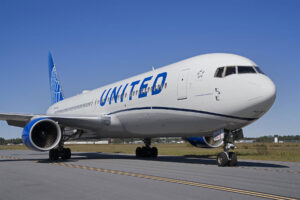Breaking Wind on Planes: A Scientific Explanation

Hey plane farters: You’re actually doing something scientific when you have to gas up the flight.
It’s a common complaint on planes: flight-induced farting. Many people, when taking to the windy skies, feel an increased need to pass wind of their own. But it’s not something they ate or a health issue. It’s actually a scientific effect in progress.
Researchers in the 1980s actually created a term for this fartnomenon: HAFE, or High Altitude Flatus Expulsion. It was actually named for the increased need to pass gas that mountain climbers experience when at high altitudes, and it’s probably what’s going on when you need to fart in flight.
Even though the air in the plane may feel the same, it’s actually pressurized, simulating an altitude of about 6,000 to 8,000 feet. For people coming from lower altitudes, that can be a significant change. As a result, just like the air expands in your carry-on bag of chips, the air expands in your intestines by about 30 percent. It’s uncomfortable, and it wants out.
“The air pressure in an airplane is different than on the ground,” said Dr. Scott Kalish, a New York City doctor focusing on travel medicine, told The Huffington Post. “In certain people, it can predispose them to developing more gas.”
Luckily, passengers can combat this stinky science. Don’t hold it in (you may hurt yourself), but try to lessen the gas effect by drinking plenty of water, avoiding foods with a high salt and fat content, and, as recommended by another New York travel doctor, Dr. Marvin Cooper, walk around the plane and “shake up your bowels a bit.”
[Photo: Shutterstock]






















Absolutely correct. Anyone who has ever had a ride in an altitude chambers knows that the need to pass gas at altitude is an absolute necessity. You just do it because that's how human bodies and Boyle's Law works. If you're not familiar with Boyle's law: At a constant temperature (as in a passenger cabin) the pressure and volume of a gas are inversely proportional. If the pressure goes down (i.e.: Cabin altitude of 6000' versus sea level), the volume goes up. That's why you have to pass the gas.
crop-dusting is what they (the FA's) call it.